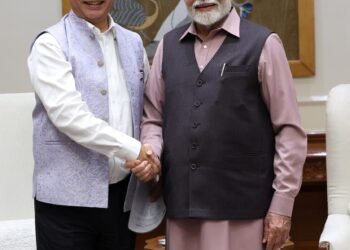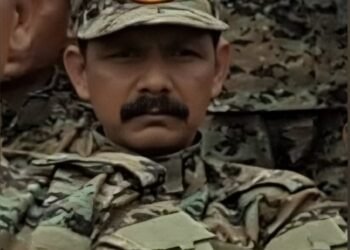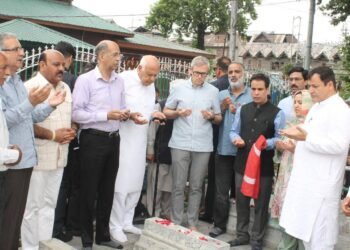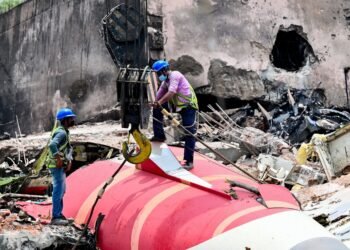Leo XIV Ascends: On just the second day of the conclave, 133 cardinals from around the world elected Cardinal Prevost as the 267th pope, marking a fast, focused decision in the wake of Pope Francis’ passing.
BY PC Bureau
May 8, 2025 – On Thursday evening, white smoke billowed from the Sistine Chapel’s chimney, and the bells of St. Peter’s Basilica rang out, signaling that the 133 cardinal electors had chosen a new pope to succeed Pope Francis and lead the Roman Catholic Church’s 1.4 billion members. The Vatican announced that Cardinal Robert Francis Prevost, an American, has been elected as the 267th pope, taking the papal name Leo XIV. The announcement came from the central balcony of St. Peter’s Basilica, where a joyous crowd in St. Peter’s Square cheered and applauded as the first puffs of white smoke emerged around 6:08 p.m. (1608 GMT).
The election occurred on the first full day of voting, following an inconclusive ballot on Wednesday evening and two additional rounds on Thursday morning. The cardinals, sequestered behind the Vatican’s medieval walls since Wednesday afternoon, returned to the Sistine Chapel at 4:00 p.m. for further voting, reaching a two-thirds majority (at least 89 votes) by Thursday evening. This relatively swift conclave, concluding after four ballots, aligns with recent trends, as the past two popes—Benedict XVI (2005) and Francis (2013)—were elected within two days.
Robert Francis Cardinal Prevost, OSA, has been elected as the new Bishop of Rome, and has taken the name Pope Leo XIV. The first American Pope pic.twitter.com/PdMV4vEITh
— Catholic Sat (@CatholicSat) May 8, 2025
READ: Missile Barrage Hits Jammu Airport, Army Camps as Pakistan Responds to Operation Sindoor
During the conclave, the cardinals were isolated from the outside world, with no access to phones, internet, or media, and swore oaths of secrecy to ensure the process remained confidential. Their only communication with the public was through the Sistine Chapel’s chimney: black smoke for an inconclusive vote, white smoke for a new pope. The Vatican also employed electronic jammers and swept the chapel for surveillance devices to prevent leaks.
Pope Leo XIV, born in Chicago and previously a cardinal with extensive experience in Peru and Rome, is the first American pope in the Church’s history, breaking a long-standing perception that the United States’ global influence might preclude an American pontiff. Prevost, regarded as a pragmatist, was appointed by Pope Francis to lead the Vatican’s bishop-picking department, making him well-known among the cardinal electors. His selection follows speculation about several “papabili” candidates, including Italian Cardinal Pietro Parolin, Filipino Cardinal Luis Antonio Tagle, France’s Jean-Marc Aveline, Hungary’s Péter Erdő, Italy’s Pierbattista Pizzaballa, and Filipino Cardinal Pablo Virgilio David.
Pope Francis, who died on April 21, 2025, at age 88 after a stroke, led the Church for 12 years, leaving a complex legacy. His papacy emphasized openness, reform, and dialogue, with initiatives to address issues like women’s inclusion, the role of LGBT Catholics, and environmental concerns. However, his progressive stance sparked debate, with conservative factions advocating for a return to traditional doctrines. The conclave faced the challenge of balancing continuity with Francis’ vision against calls for a more conservative direction, amid ongoing issues like the Church’s budget deficit and the fallout from clerical sexual abuse scandals.
Following his election, Pope Leo XIV will deliver his first public address and the traditional “Urbi et Orbi” blessing from the balcony of St. Peter’s Basilica, setting the tone for his pontificate. The choice of the name Leo XIV, evoking Pope Leo XIII (1878–1903), who engaged with modern social issues, may signal Prevost’s intent to address contemporary challenges while rooted in Church tradition.
The conclave, the largest and most geographically diverse in history with cardinals from 70 countries, reflected the globalized Church shaped by Francis, who appointed 108 of the 133 electors. As Pope Leo XIV assumes leadership, he inherits a Church at a crossroads, navigating internal divisions, global expectations, and the enduring mission to guide 1.4 billion Catholics.













